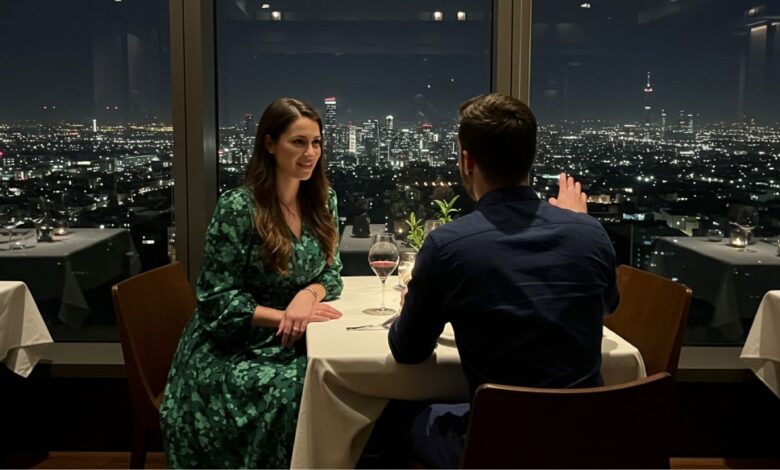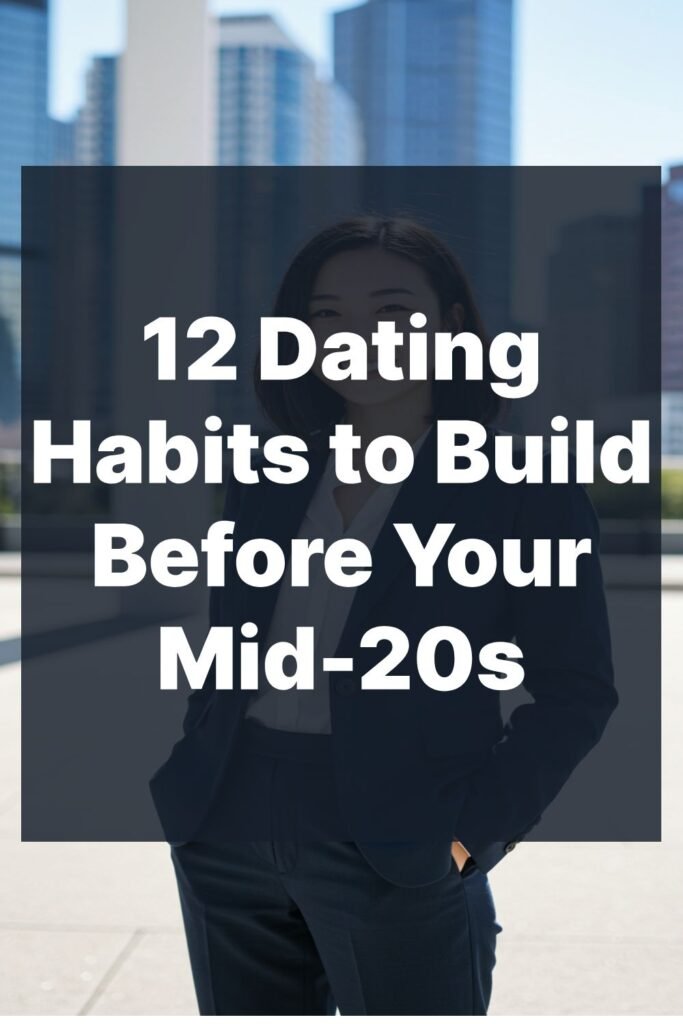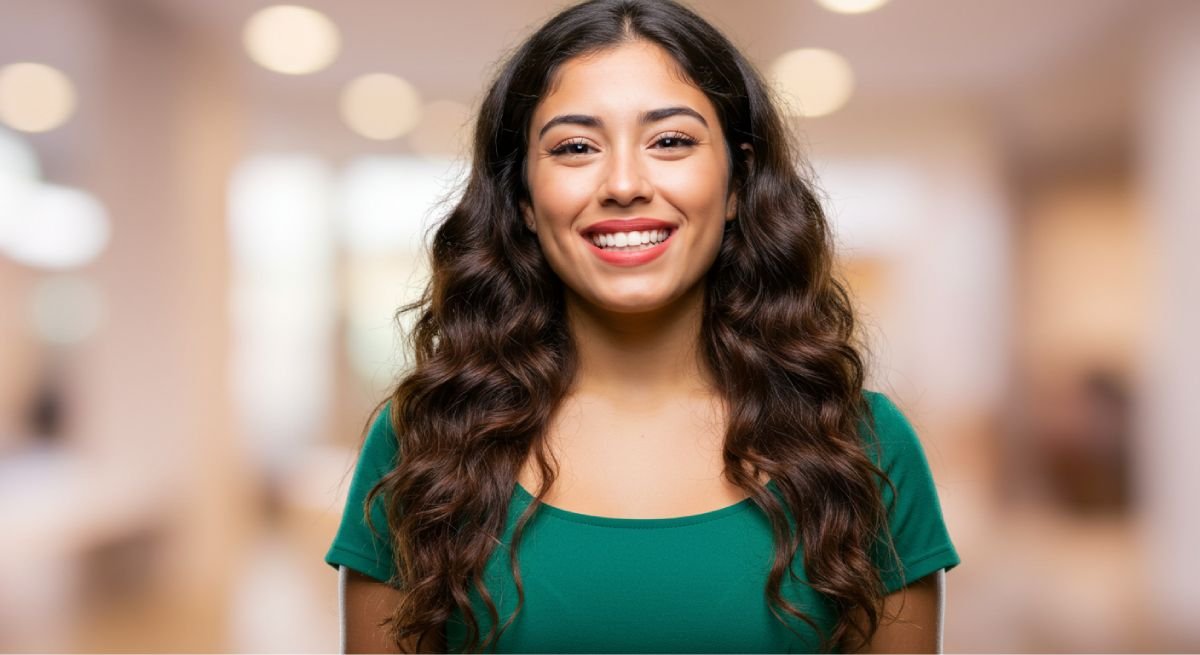
Dating in your early 20s can be confusing, exciting, and sometimes overwhelming. You’re still discovering who you are, what you value, and what kind of relationship actually serves you—not just excites you. This is the time when your choices begin shaping your emotional patterns and your expectations in love.
If you’re not mindful, it’s easy to fall into the trap of toxic dynamics, dating for validation, or repeating the same heartbreak in different forms. The relationships you form in your early 20s may not always last forever, but the lessons you take from them will.
The good news? You don’t have to learn every lesson the hard way. Some wisdom can come before the heartbreak. By mastering a few core dating habits early on, you set yourself up for meaningful, emotionally healthy, and self-respecting connections.
Here are 12 dating habits to build before your mid-20s—so you can stop guessing and start growing.

1. Stay True to Yourself
It sounds cliché, but in your 20s, the temptation to morph into what someone else wants is real. You might dress differently, change your opinions, or suppress your true feelings just to be liked.
But here’s the truth: when you abandon yourself for someone else, the relationship is already losing authenticity. If it requires losing pieces of yourself to keep someone, it’s not love—it’s performance.
Learn to honor your voice, your values, and your weird quirks. The right person won’t just tolerate them—they’ll be drawn to them.
2. Practice Open, Honest Communication
If you only learn one relationship skill in your early 20s, let it be communication. This includes being able to clearly express your feelings, your boundaries, and your needs—without guilt.
But communication isn’t just about talking. It’s also about listening. Don’t interrupt when your partner is opening up. Ask questions. Be curious. Sometimes the most powerful thing you can say is: “I hear you. How can I support you?”
Being open doesn’t mean oversharing on the first date. It means being real, clear, and respectful—and choosing partners who do the same.

3. Learn from Your Dating History
Your past relationships are full of gold—if you’re willing to mine it.
What patterns keep showing up? Do you fall for emotionally unavailable people? Do you tend to rush into things too fast? Do you ghost when things get too close?
The goal isn’t to blame yourself—it’s to become aware. Awareness leads to change. And change leads to better love.
So take a moment between relationships to reflect—not just move on and distract. Self-reflection is a dating superpower.
4. Don’t Rush the Process
There’s often pressure to “find the one” in your 20s—especially when friends start pairing off and social media screams relationship goals at you.
But love isn’t a race. Dating is not about who gets into a relationship first—it’s about who ends up in the right one.
Don’t settle just because you feel behind. Slow down. Observe. Let someone reveal who they are over time. The most beautiful relationships often begin with friendship, curiosity, and a whole lot of patience.
5. Spot Red Flags Early—and Believe Them
People tell you who they are very early. But when you’re enamored or hopeful, you may ignore the warning signs.
Does your date lie easily? Make cutting jokes at your expense? Avoid accountability? Act charming but show no emotional availability?
These are not quirks—they’re indicators.
Red flags don’t magically turn green over time. Your intuition is trying to protect you. Listen to it. Don’t stay longer hoping they’ll change. What you tolerate now becomes what you live with later.
6. Accept That Not Every Relationship Will Last
Not all relationships are meant to go the distance. Some will be seasons, not lifetimes.
And that’s okay.
A short relationship can still be meaningful. A brief connection can teach you volumes. The key is to release the guilt when things end, and take the wisdom with you.
The end of a relationship doesn’t mean you failed. It means you learned something about what fits—and what doesn’t.
7. Date for Connection, Not Validation
We’ve all done it: gone on a date just to feel desirable. Entered a relationship to avoid being alone. Stayed in something lukewarm just to prove we’re lovable.
But the more you date for validation, the more empty you’ll feel afterward.
The right partner doesn’t complete you—they complement the self-worth you already built. If dating is your main source of confidence, take a step back and reconnect with yourself.
You are already enough—whether single, dating, or in love.
8. Be Clear About What You Want
Do you want something serious? Casual? Are you still figuring it out?
Whatever your answer, own it.
Ambiguity leads to heartbreak. If you want a committed relationship but pretend to be cool with a situationship, resentment will grow. If you’re not ready for something serious but let someone fall anyway, you risk hurting someone deeply.
Be honest—from the beginning. You don’t have to know everything, but you do have to be clear about where you stand. Clarity is kindness.

9. Handle Rejection Like a Grown-Up
You won’t be everyone’s type—and they won’t always be yours. And that’s not a problem. That’s normal.
Rejection doesn’t mean you’re not good enough. It just means something wasn’t aligned.
Learn to take rejection with grace, not bitterness. Don’t try to prove your worth to someone who’s walking away. Don’t beg for attention or closure. Keep your dignity.
Every “no” is leading you closer to the right “yes.”
10. Keep Some Parts of Your Relationship Private
You don’t owe the internet every detail of your love life.
In a world of oversharing, privacy is powerful. It protects the sacredness of your connection. It allows you to grow together without outside noise or judgment.
You can celebrate your partner without broadcasting every argument or milestone. Some of the most beautiful love stories are the ones nurtured quietly, not performed publicly.
11. Set and Respect Boundaries
Boundaries are not about keeping people out—they’re about honoring your own emotional space.
Learn to say no when something doesn’t feel right. Don’t feel obligated to respond to late-night texts, share your body too soon, or sacrifice your priorities for someone you just met.
Equally important: Respect your partner’s boundaries too. Don’t guilt, pressure, or manipulate. True intimacy is built through trust, not control.
The earlier you normalize healthy boundaries, the better your relationships will be.
12. Enjoy Being Single, Too
Your 20s are not just about who you date—they’re about who you become.
Don’t treat singlehood like a waiting room for love. Use it as a time to build your passions, deepen your friendships, and connect with your inner self.
When you’re happy on your own, you date from a place of abundance—not desperation. You choose love freely, not because you need it to feel whole.
Ironically, the more content you are alone, the better your relationships will be. Because you’re not looking for someone to complete you—you’re looking for someone to walk beside you.
In Conclusion
Dating in your early 20s can feel like emotional boot camp—but it’s also a season full of clarity, growth, and becoming. The lessons you learn now shape how you love for years to come.
So whether you’re dating casually or looking for your life partner, remember this: The most important relationship you’ll ever have is with yourself. Build that one first, and the rest will follow.
Use these 12 dating habits as your compass. Not to be perfect—but to be intentional, aware, and empowered in love.





